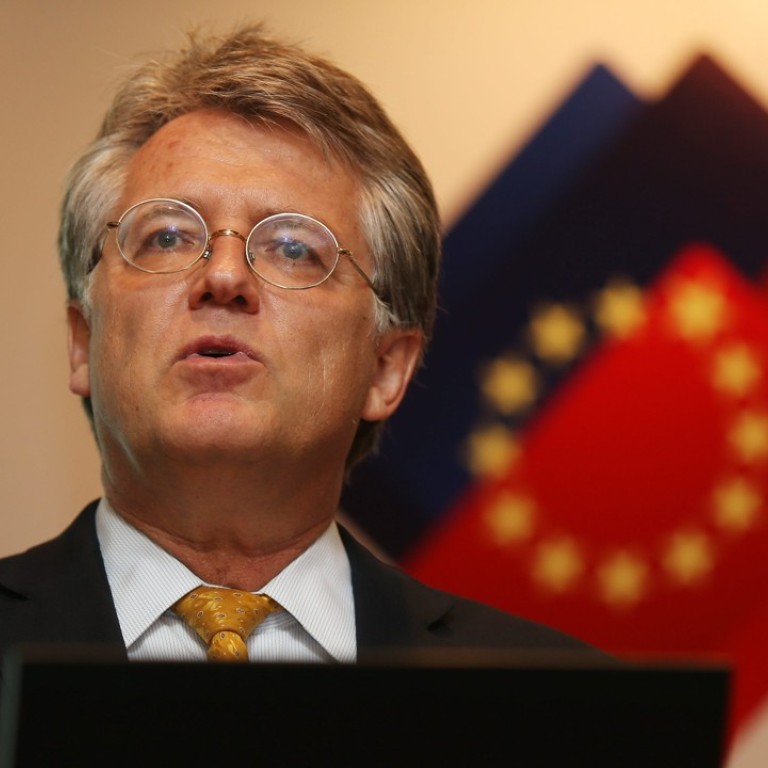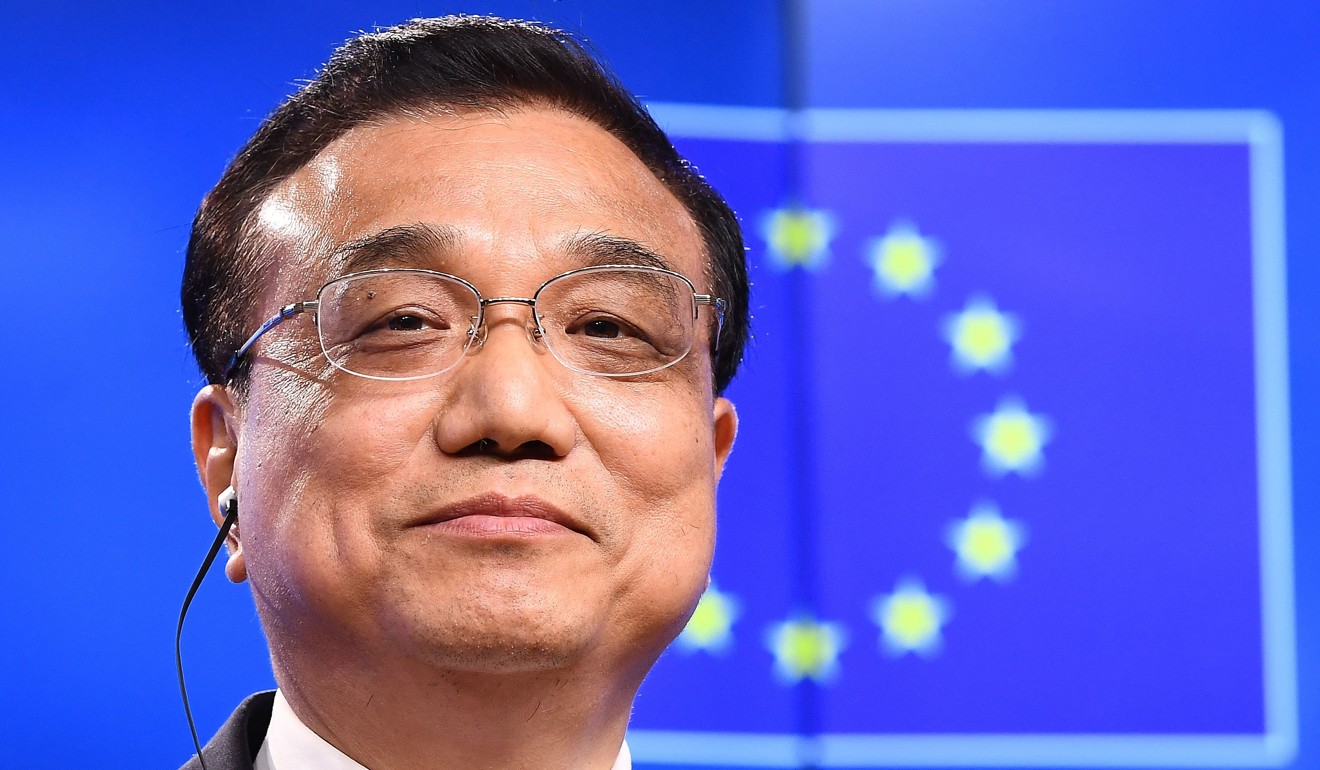
Beijing more insecure about foreign ideas and criticism than before, says China watcher
European business leader Joerg Wuttke believes leadership is becoming less curious and eager to learn from the West
China has become less curious and keen to learn from and open up to the West despite its growing importance on the world stage, according to a European business leader and veteran China watcher.
Joerg Wuttke, former president of the European Union Chamber of Commerce in China, has seen first-hand the dramatic change in mainland society over the past three decades.
“China is now very different from decades ago. When I first came here in the early 1980s, I noticed huge curiosity and eagerness to learn and to open up. But now China is far more globally engaged but far more closed up,” he told the South China Morning Post.
Wuttke added that today’s leadership was more insecure about opening up to foreign ideas despite increasing wealth on the mainland.
“China’s current leaders are quite different from their predecessors. Even if they look far more secure in office, more powerful and the country is much wealthier, it seems they have a stronger sense of insecurity – lashing out at criticism, cutting off ideas and challenging foreign non-government organisations,” Wuttke said.

China has become the world’s largest exporter, it has the largest foreign exchange reserves and it has surpassed the United States as the world’s biggest economy based on purchasing power parity.
The economic miracle was achieved through opening up to the outside world at a time of increasing globalisation – with China the biggest beneficiary.
Four years ago, President Xi Jinping unveiled an ambitious reform plan to rejuvenate the nation by the middle of the century. Meanwhile, the government has tightened censorship of publications, websites and social media accounts to do with Western ideas and sensitive issues. Academics have also been in the cross hairs and they are allowed far less scope for open criticism.
Wuttke lamented the lack of courage on the part of Chinese researchers to challenge or investigate, saying they “used to be always pushing the envelope of thinking” – whereas now they all seemed to say the same thing. “I think it is a great pity because it will stifle intellectual curiosity, and hence slow progress of the society of this great nation,” he said.
Wuttke, who is considering running for the European Parliament in 2019, said China’s leadership needed to be more self-confident when it came to facing criticism.
“When I feel depressed about the problems in China, I read works by Lu Xun. There are these voices in his books and I believe those voices will come back again,” Wuttke said.
Lu Xun, whose real name was Zhou Shuren, is one of China’s most respected writers and was known for his bold criticism of society.
Wuttke suggested China set up a Lu Xun Institute to develop its soft power and cultivate the idea of becoming a nation that “dares to think and challenge”. China has set up more than 500 Confucius Institutes since 2004 to promote Chinese language and culture overseas.
“I have spent nearly all my adult life in China,” Wuttke said. “We love China, though we also complain about air pollution, food security and traffic like all Chinese do.”

